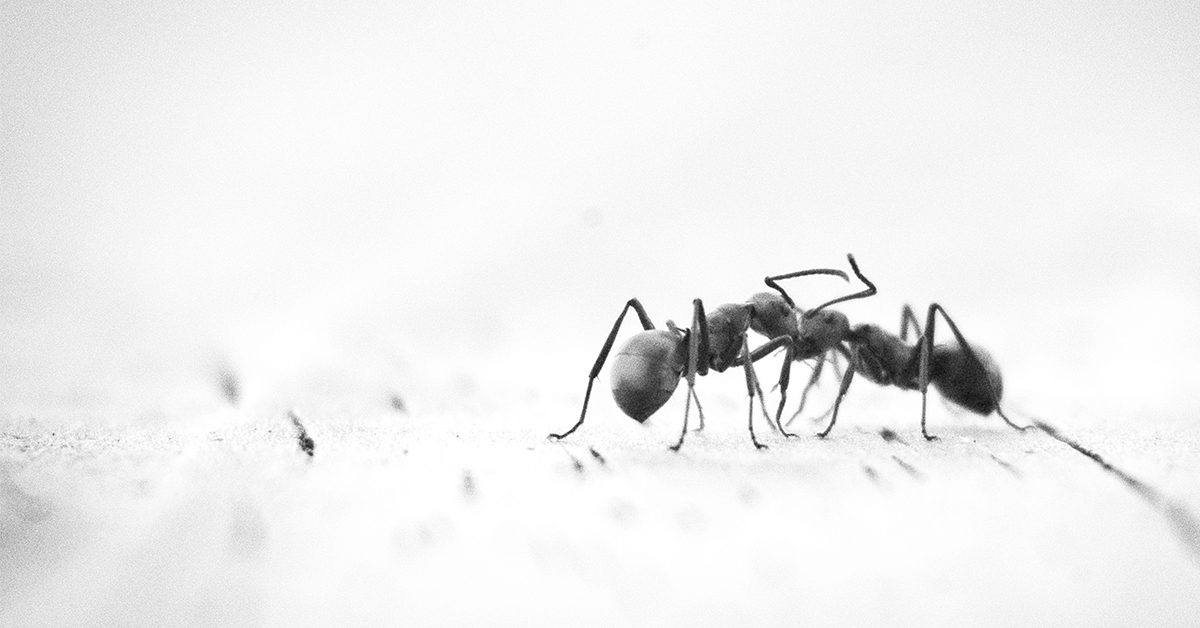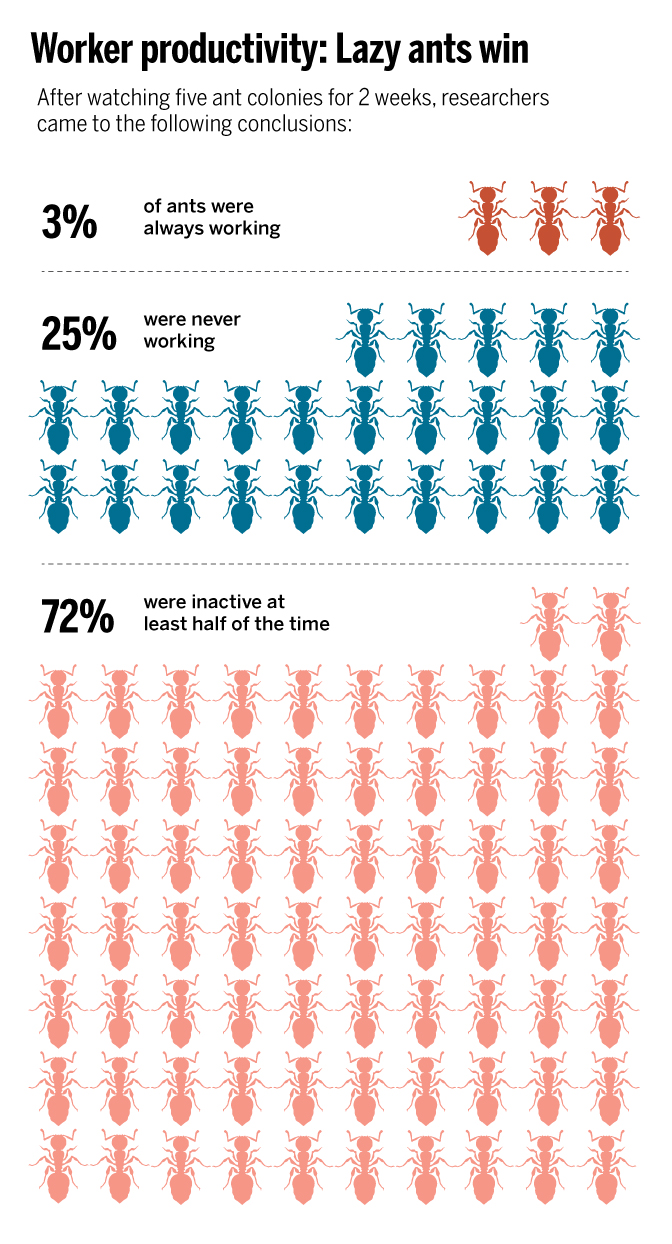
Photo by Thomas Kinto on Unsplash
We hold ants as restless and enduring, hard workers worthy of our utmost respect. But if recent studies are any indication, not all ant species have such a dignified conduct.
Ants are eusocial insects that share a lot of common traits with us humans. Chief among them is social behavior, particularly the fact that both humans and ants solve problems in groups. Like us, ants delegate tasks within the group: “defend the hive,” or “stock up the nest with supplies for the winter.” But there are some types of ants that (apparently) refuse to apply themselves.
The lazy ants
Daniel Charbonneau and Anna Dornhaus studied the behavior of a Temnothorax rugatulus colony and found that only 3% of the population worked hard while the rest of the group mostly did nothing. They wrote a paper about it and characterized the lazy ants as workers “specialized” on inactivity. Don’t expect an explanation, either. According to the paper, “The role of this inactivity for colony function remains unclear.” Not exactly the kind of payoff you’d expect after painstakingly observing ant behavior for days on end.
So it would seem that laziness is something that characterizes certain species of ants, but then how can the colony survive with only 3-out-of-100 ants burning the midnight oil? One explanation could be that the colony’s demands are so low that it doesn’t take more than 30,000 workers to satisfy the needs of a hive one-million-strong. Or maybe what appears to be ants sitting and doing nothing could have something to do with pheromone syndication (pheromones being the ants’ primary means of communication). In any case, it’s doubtful that the answer to this question is “just because.”
The aristocratic ants
Whether or not Temnothorax rugatulus is but a mere exception in a vast pool of hard-working formicidae, it appears that there is one species at the other end of the spectrum that does the exact opposite: enslave the masses so that a small elite can live worry free. This one, we’ve known for a while.
An article in the Chicago Tribune from August 6, 1892 (no, that’s not a typo) describes a species of “aristocratic ants” that have “docile and zealous servants” trained to attend to all their wants and needs. At one point, the story seems to draw parallels between American society in the 1800s and behavior in the natural world. However, the same piece ends with an example of a species where the queen, although pampered and well fed, “still participates in the labors of the community exactly like a humble worker.”
Recent studies have confirmed the aristocratic behavior of many species of ants. In fact, one article in Discover Magazine describes how the persecuted ants sometimes turn on their masters and overthrow the regime. Captivating stuff!
(Colony) size matters
In a short clip on Big Think, entomologist Mark Moffett shows how ant societies move at speeds relative to the size of the colony. Colonies with millions of individuals working together are, not surprisingly, the ones that share the most common traits with humans. And just like with our own society, the amount of information that gets processed by an ant colony is proportional to the speed at which their society moves and grows. In fact, according to Moffett, there may be more similarities between ants and humans than there are between ants and primates. Because unlike primates, both humans and ants can have societies in the millions.
Ants are very different from species to species, but that hasn’t stopped them from colonizing almost every landmass on Earth. Working in numbers and collaborating 100% of the time seems to be the safest and most efficient way for a creature to stand the test of time – ants being around since the mid-Cretaceous period some 130 million years ago. While aristocracy may not be the nicest way to go about it, there are plenty of other ant societies that have amazing stories to tell. Listening properly to these stories may help us learn valuable lessons about sacrifice for the greater good, and our ultimate survival as a species.

2 Comments
You can post comments in this post.
Well then… I now feel less bad for being a lazy slob. You just don’t know it, but i’m being productive in my own way, and doing nothing is a big part of that. 🙂
Paul 9 years ago
Sound Advice from this article:
‘Listening properly to these stories may help us learn valuable lessons about sacrifice for the greater good, and our ultimate survival as a species.’
For:
Ants are using mathematics to negotiate a chaotic complex world that like the human world is interconnected and interdependent. Ants are way ahead of us in terms of addressing complexity and more importantly: their ability to fight viruses.
So:
‘Listening properly to these stories may help us learn valuable lessons about sacrifice for the greater good, and our ultimate survival as a species.’
Think Covid!
Robert Stott 4 years ago
Post A Reply